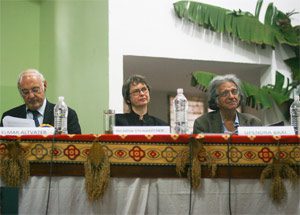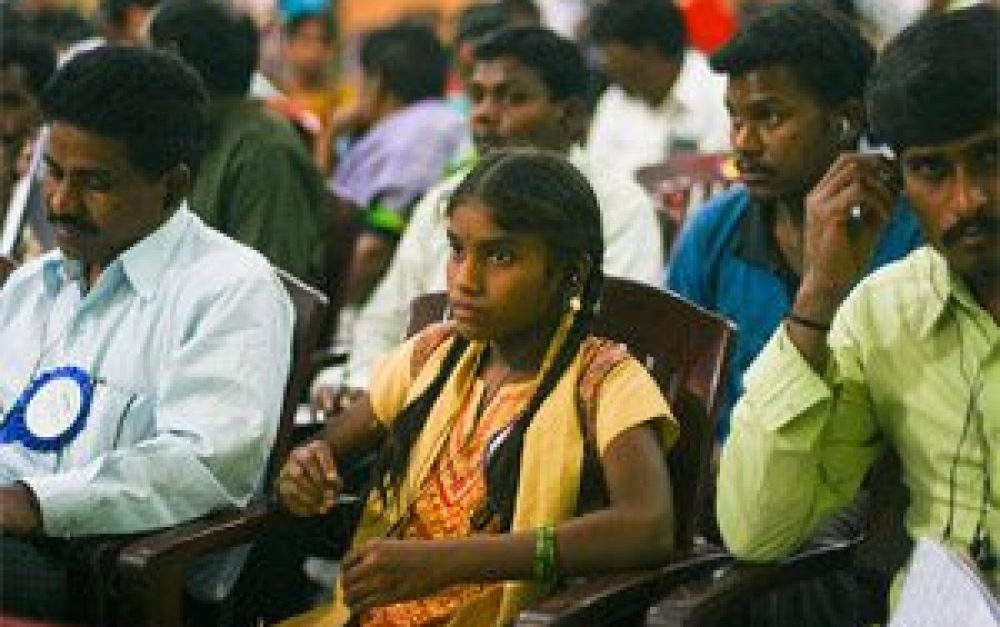Dec 3, 2011 – Today, we launched the landmark human rights tribunal against six pesticide corporations: Monsanto, Syngenta, Dow, Bayer, DuPont and BASF. These corporations control the global trade in pesticides worldwide, and regularly violate our rights to health, life and livelihood. The launch, timed to coincide with the 27th anniversary of the disaster in Bhopal, India, marked a vital moment in PAN’s continued work to roll back corporate control of food and agriculture, and to protect our health — worldwide.
Why a tribunal?
By PAN’s analysis, the undue influence of pesticide corporations is a root cause of the problems we seek to resolve. It is hardly an exaggeration to say that nearly every time we work to prevent or seek compensation for the health harms caused by pesticides, we come head to head with Dow, Monsanto, Syngenta or a pesticide corporation of similar ilk.
It’s long past time that state, national and international law & governance caught up with the realities on the ground — that’s where a tribunal comes in.
Just one example: Syngenta’s relentless attempts to keep its pesticide atrazine on the U.S. market. This pesticide is so widely used that it is found in nearly all our drinking water, even after being banned in Europe. Science shows:
- Atrazine is an endocrine disruptor, which means that even at very low levels, exposure to this chemical has outsize effects on the delicate hormonal signalling systems that govern so many of our bodily systems;
- Atrazine is linked to reproductive harms, including infertility, abnormal menstrual cycles and birth defects;
- Atrazine chemically castrates male frogs.
 Pesticide companies pour millions of dollars into holding a rigid line against common sense pesticide policies that we truly need in place in order to protect our health and ecosystems from the harms of their chemicals, and mitigate against corporate control over food and farming.
Pesticide companies pour millions of dollars into holding a rigid line against common sense pesticide policies that we truly need in place in order to protect our health and ecosystems from the harms of their chemicals, and mitigate against corporate control over food and farming.
It’s long past time that state, national and international law and governance caught up. And that’s where a tribunal comes in.
International citizen tribunals have been used across history in momentous efforts to set things right. Tribunals operate by:
- Bringing people together across many walks of life to work together for change. Already, hundreds of people have been motivated to travel to the tribunal in India and become an aligned force for pesticide corporation accountability. Alongside those who have traveled here, thousands of people are sending their statements of support and offering additional evidence for the trial.
- Requiring a science–based analysis of the harms done by pesticide corporations, and legal documentation of the flaws in current policy and government. The jury rigorously examines the facts as presented using a conventional court format, forcing a bullet-proof presentation of the case.
- Transparently and publicly calling corporations to account. All of the corporations were summoned, were sent the indictment and will be served the verdict. This act alone signals that people around the world are courageously willing to call out the harms done to say, “No more.”
- Creating the building blocks of new international law and binding mechanisms for corporate accountability. We will use the verdict as a tool to mobilize and systematically build the foundation of future policy change.
PAN knows that we need these particular global corporations to loosen their stranglehold on government, science and agriculture in order for new food systems and environmental health to flourish. No doubt this will be a long journey. And we are so pleased to be taking this important, momentous step.







